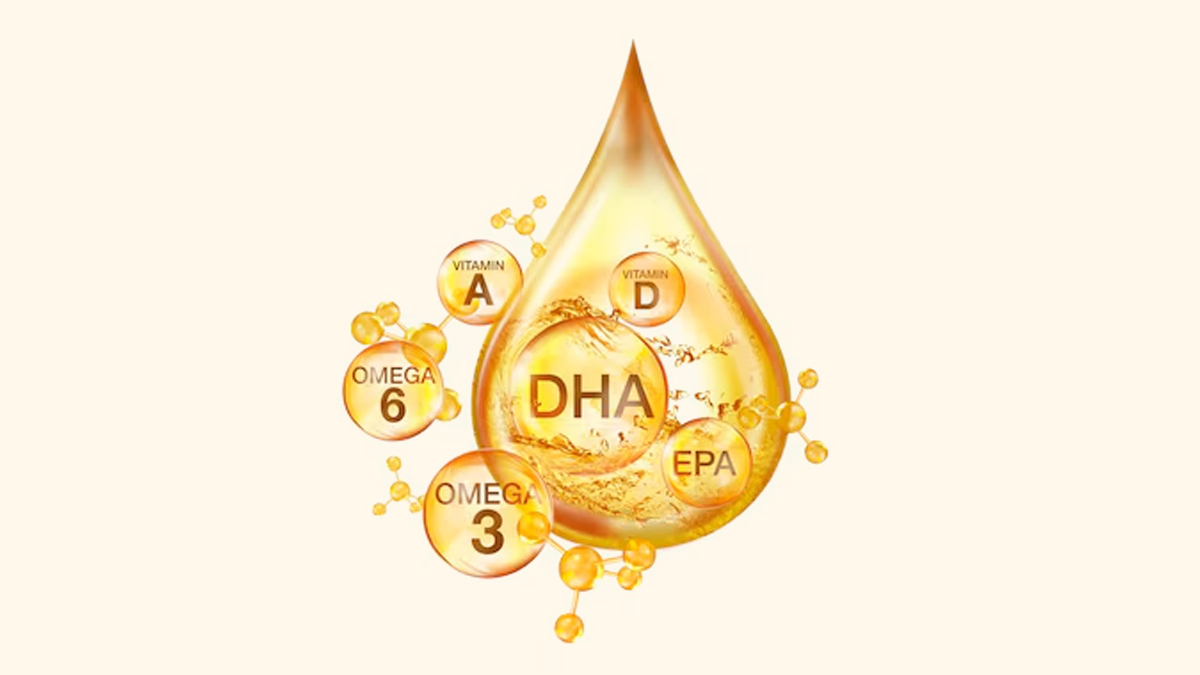
Breastfeeding is often known for its numerous health benefits, but its role in eye health, particularly in preventing myopia and ensuring proper retina development in babies, is seldom discussed. Recent studies have highlighted the significance of breast milk in providing essential nutrients and growth factors crucial for the development of a baby's eyes. This natural nourishment not only supports overall growth but also plays a vital role in the development of the retina and may even reduce the risk of myopia later in life. Understanding these benefits underscores the importance of breastfeeding as a foundation for lifelong visual health.
Table of Content:-
To understand how breast milk is beneficial for infant eyes, OnlyMyHealth interacted with Dr Abhishek Chopra, Consultant Neonatologist and Paediatrician, Cloudnine Group of Hospitals, New Delhi.
Dr Chopra said, “The benefits of breastfeeding in preventing myopia (nearsightedness) and ensuring proper retina development are largely due to the unique composition of breast milk, which is rich in essential nutrients, bioactive components, and fatty acids crucial for the development of the visual system.”
1. Essential Nutrients in Breast Milk
Breast milk is a powerhouse of nutrients that are critical for the healthy development of a baby’s eyes. These include:

DHA (Docosahexaenoic Acid): DHA is an omega-3 fatty acid that is crucial for the development of the retina and the brain. The retina, the light-sensitive layer at the back of the eye, relies heavily on DHA for its structural and functional development. According to Dr Chopra, adequate levels of DHA during infancy are associated with better visual acuity and may reduce the risk of developing myopia. “Breast milk is naturally rich in DHA, with 0.1-04% of fatty acid being DHA especially when the mother consumes a diet high in omega-3 fatty acids, such as fish or flaxseed,” said Dr Chopra.
Vitamin A: This vitamin is essential for good vision. It helps protect the surface of the eye (cornea) and is a component of rhodopsin, a protein in the eyes that allows for low-light vision. Breast milk provides an adequate supply of vitamin A, which supports overall eye health and reduces the risk of retinal issues and other vision problems.
Lutein and Zeaxanthin: These antioxidants, found in breast milk, help protect the eyes from harmful blue light and support the development of the retina. Dr Chopra explained, “They are important for preventing oxidative stress in the eyes, which can lead to various eye conditions, including myopia. They cannot be synthesised by infants and must be obtained from a diet with levels much higher in breastfed babies compared to formula fed babies.”
2. Role in Preventing Myopia

Myopia is a condition where distant objects appear blurry because the eye elongates, causing light to focus in front of the retina instead of on it. The prevalence of myopia is increasing globally, and early childhood development plays a crucial role in its onset.
Visual Environment: Parental myopia is clinically recognised as a risk factor for child developing myopia with visual environment, especially in the early years also being critical. “Breastfeeding supports optimal early visual experiences, as breastfed infants are often in close contact with their mother, engaging in eye contact and visual tracking, which may encourage better visual development,” Dr Chopra said.
Lower Risk of Myopia Development: Studies suggest that breastfeeding may be associated with a lower risk of developing myopia later in childhood. According to Dr Chopra, the exact mechanism is not fully understood, but it is believed that the nutrients in breast milk, along with the nurturing breastfeeding environment, contribute to healthier eye development, potentially reducing the likelihood of myopia.
Also read: 7 Nutritional Benefits Of Breast Milk
3. Ensuring Retina Development
The retina is vital for converting light into neural signals, which are then interpreted by the brain as images. Proper retina development is essential for good vision, and breastfeeding contributes to this in several ways:
Critical Period of Development: “The first few months of life are a critical period for retinal development. The high concentration of DHA in breast milk supports the growth and maturation of retinal cells, ensuring proper visual function as the infant grows,” Dr Chopra said.
Immune Protection: Breast milk contains antibodies and immune-boosting components that protect the infant from infections, including those that could affect the eyes. By reducing the risk of infections that could compromise eye health, breastfeeding indirectly supports healthy retina development.

4. Long-Term Benefits
The benefits of breastfeeding extend beyond infancy. The foundation laid by breastfeeding in the early months can have long-term positive effects on eye health, potentially reducing the risk of visual problems such as myopia and other retinal disorders later in life.
Conclusion
Breastfeeding provides essential nutrients like DHA, vitamin A, lutein, and zeaxanthin that are critical for the development of the retina and overall eye health. It supports a nurturing environment for early visual experiences, potentially lowering the risk of myopia and ensuring proper retina development in babies. By breastfeeding, mothers can give their babies a strong foundation for healthy vision, which can have lasting benefits throughout their lives.
Also watch this video
How we keep this article up to date:
We work with experts and keep a close eye on the latest in health and wellness. Whenever there is a new research or helpful information, we update our articles with accurate and useful advice.
Current Version
